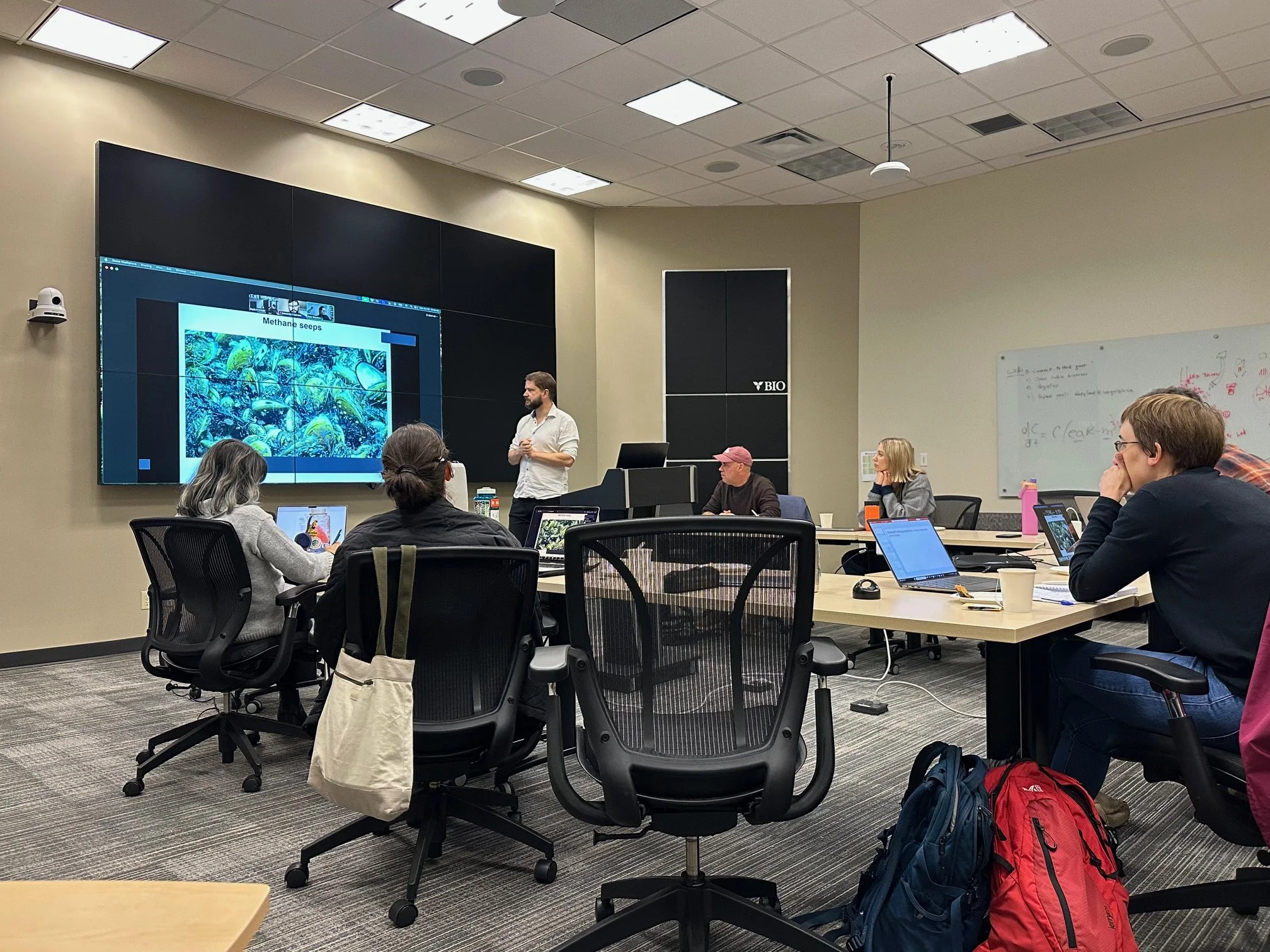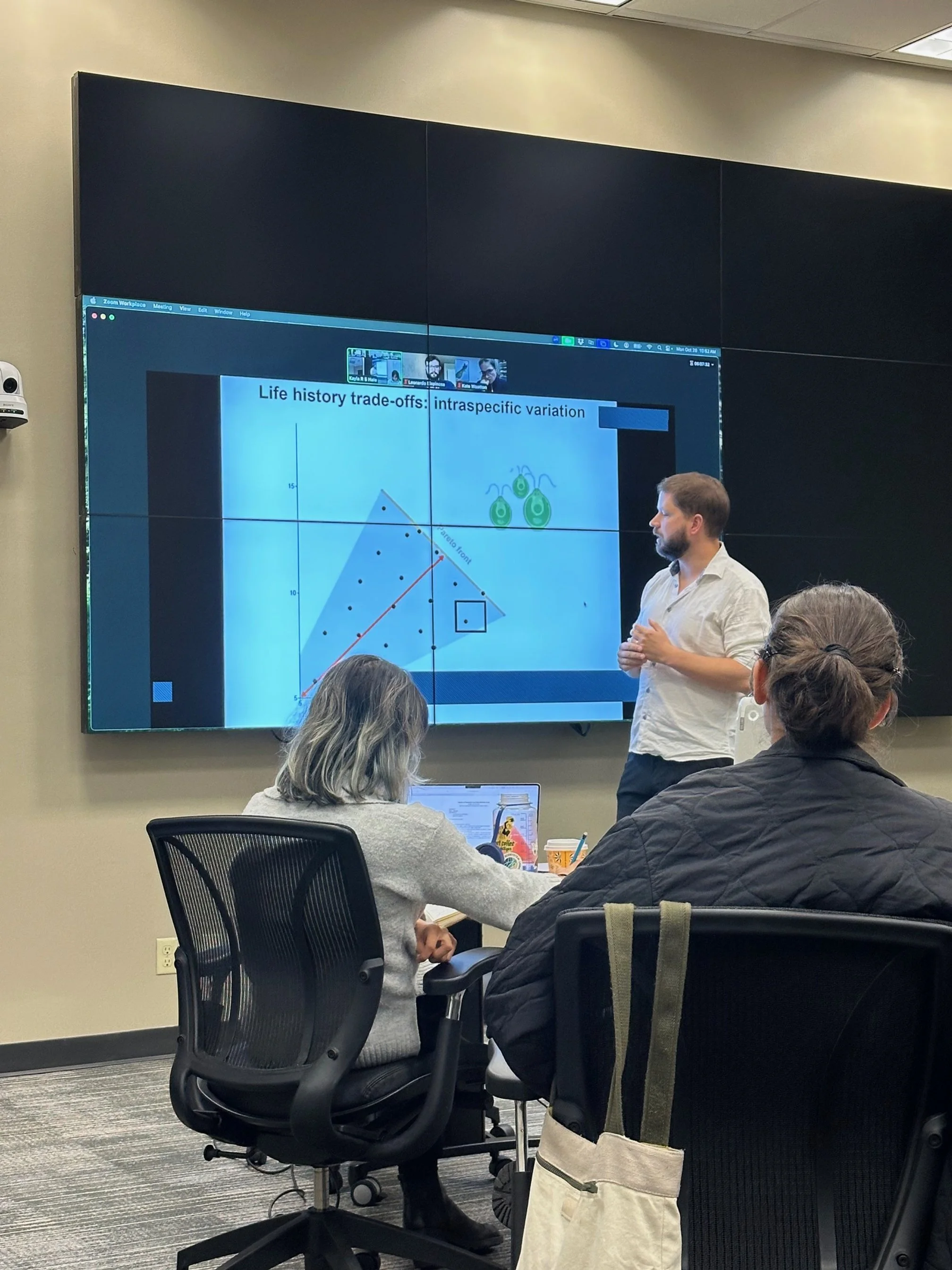New Working Group: Understanding the Pace of Change in Ecosystems
Pictured: Dr. Kayla Hale engages in a discussion with fellow attendees
In late October 2025, Dr. Kayla Hale convened an international working group at the Centre for Ecosystem Management (CEM) to explore how the pace of life in ecosystems is shifting under global change. Over five days, postdoctoral researchers from CEM joined scientists and students from the University of Bern (Switzerland), Pierre and Marie Curie University (France), the University of California, Davis (USA), and the University of Canterbury (New Zealand). Together, they set out to connect the characteristics of the smallest organisms—plants and algae—to the larger patterns that shape entire food webs.
Every ecosystem relies on its primary producers, the organisms that capture sunlight and turn it into energy for others. Their traits—how efficiently they photosynthesize, how quickly they grow, and how palatable they are to herbivores—help determine how energy moves through an ecosystem. As global conditions change, however, these foundational traits are shifting. Species are adapting or relocating, food webs are being rearranged, and in many cases, ecological systems are beginning to operate on a faster timeline.
Pictured: Dr. Jason Laurich presents his ideas to the working group
Pictured: Dr. Jason Laurich discusses how intraspecific variation can influence life history trade-offs.
The group’s discussions and analyses led to a conceptual framework for predicting how ecosystems might respond to these accelerating dynamics. By organizing different systems along a “fast-to-slow” spectrum—where fast systems, such as open-water lakes dominated by microscopic phytoplankton, contrast with slower systems like kelp forests or nearshore algae beds—the team hopes to find a unifying way to describe how energy and nutrients flow. Global change, they suggest, may be pushing slower ecosystems toward the behaviour of faster ones, altering stability and productivity in the process.
Building on this work, the team is developing both a synthesis paper and new bioenergetic models to test their ideas. These models will allow researchers to explore how varying rates of growth and energy transfer influence resilience, resource yield, and other key ecological functions. By framing ecosystems in terms of their pace, the project offers a powerful lens for understanding—and potentially anticipating—how life on Earth is adapting to a world that is moving ever faster.
Inquiries regarding this working group can be directed to Dr. Hale.



